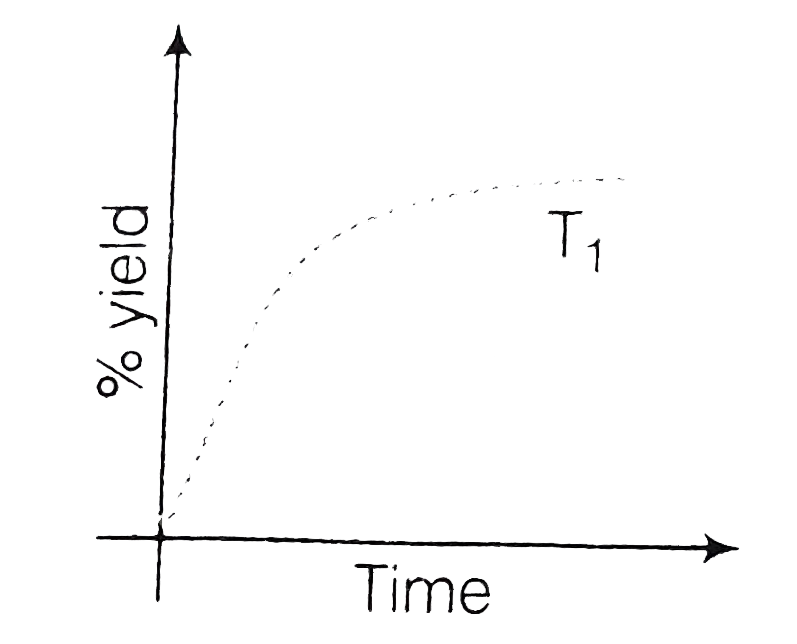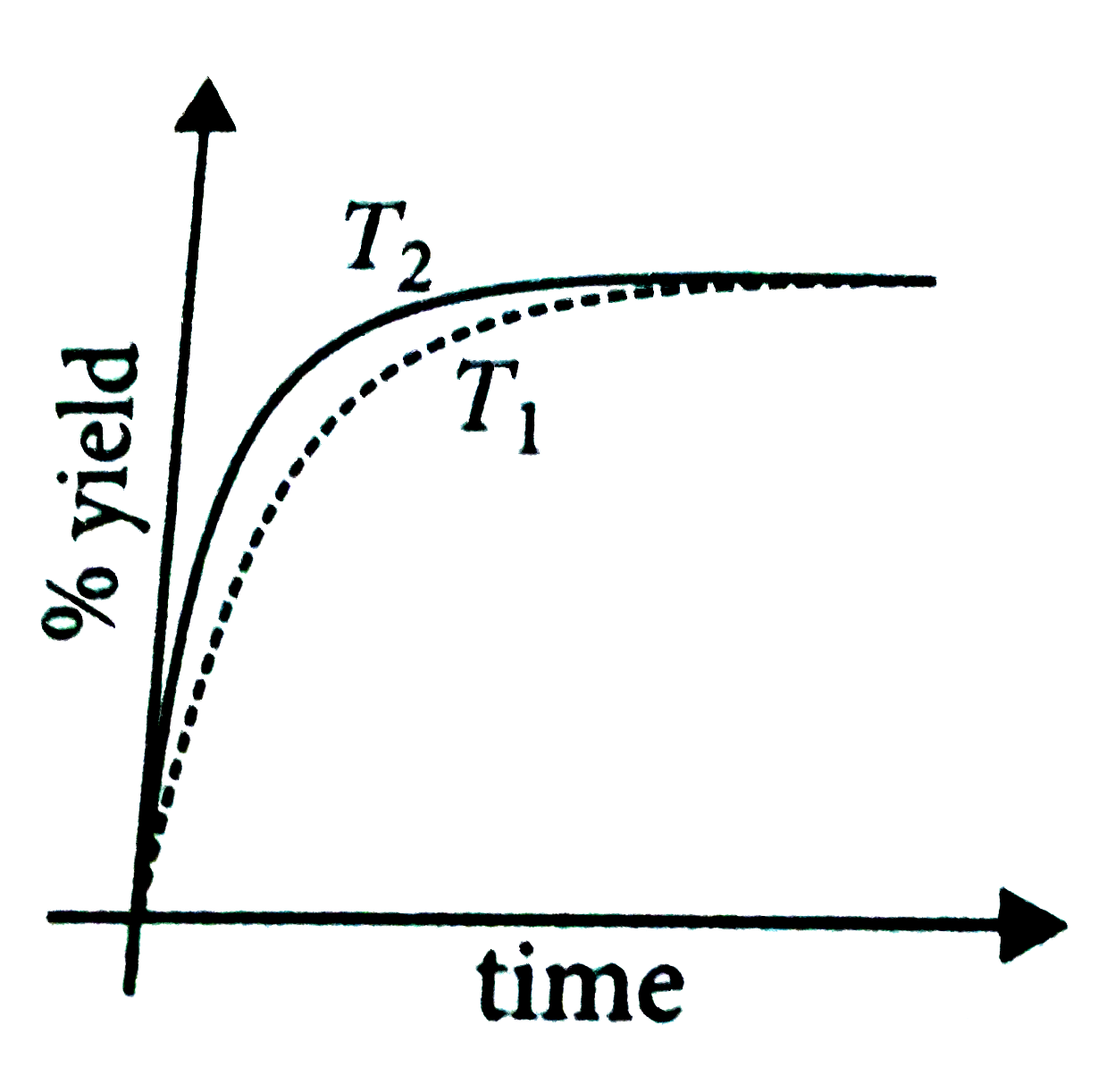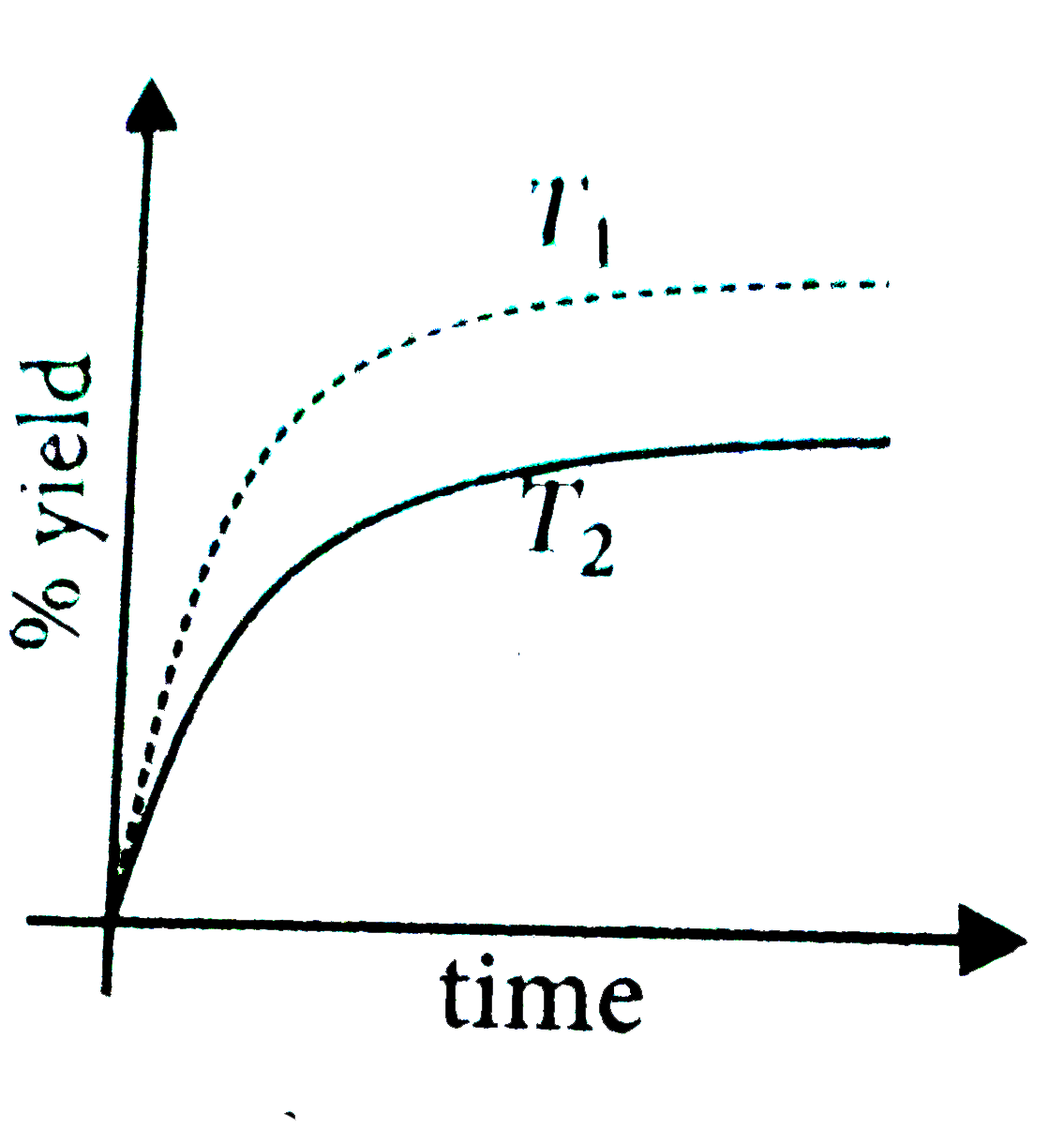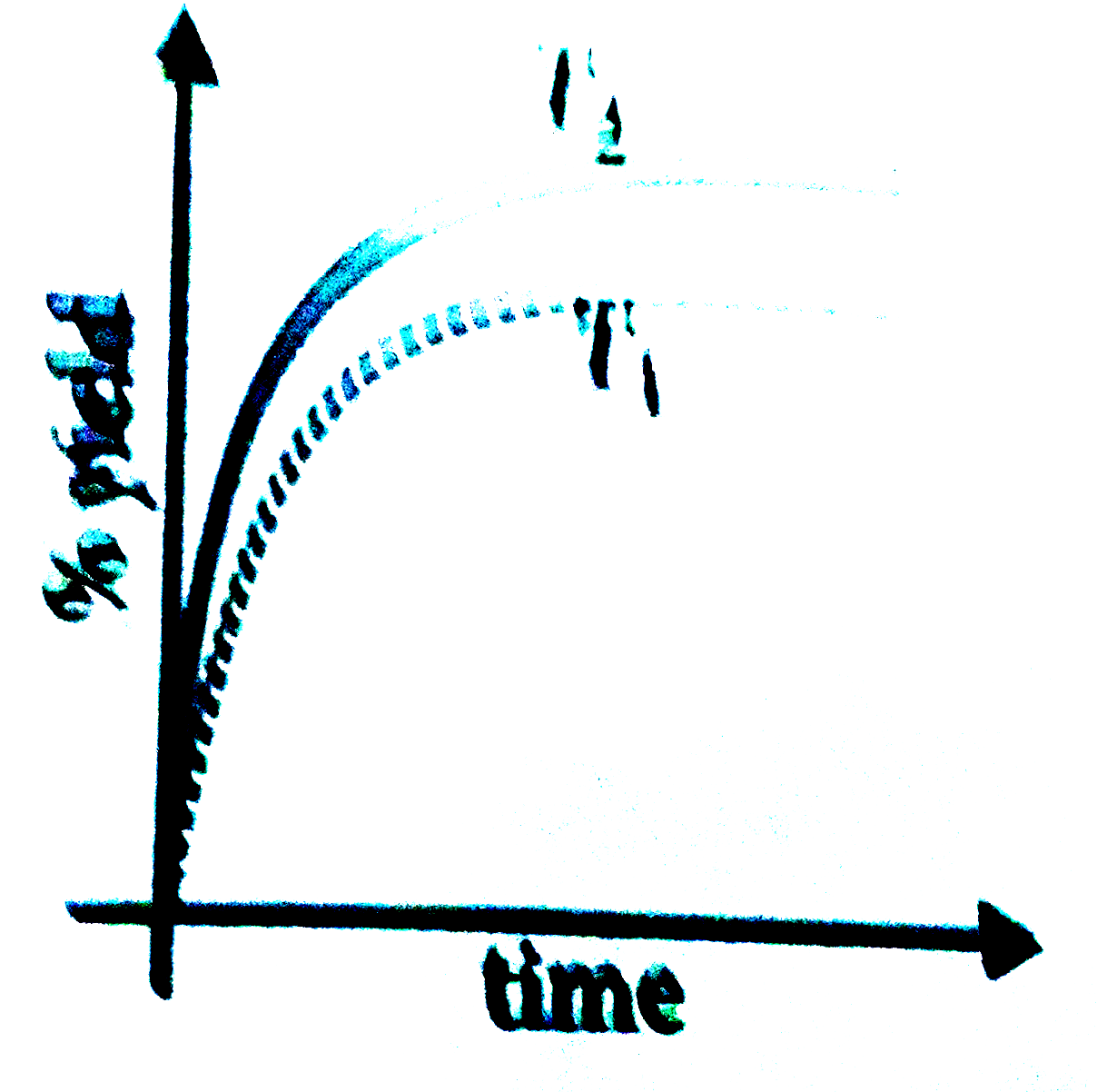The % yield of ammonia as a function of time in the reaction, N2(g)+3H2(g)⇔2NH3(g)'ΔH<0
at (p,T1) is given below

If this reaction is conducted at (p,T1), with T2>T1 the % yield by of ammonia as a function of time is represented by
A
a. 
B
b.
C
c.
D
d. 
Video Solution
Text Solution
The correct Answer is:B
N2(g)+3H2(g)exo⇐⇒endo2NH3(g),ΔH<0
Initially, with increase in temperature (T2>T1)% yield increases.
Afterwards, equilibrium is reached and if the temperature is increased, i.e., heat supplied to the system, then according to Le Chatelier's principle, the equilibrium will shift in the backward sirection, where the heat is absorbed. Hence, the % yield decreases.
|
Topper's Solved these Questions
- EQUILIBRIUM BOOK - NCERT FINGERTPS ENGLISHCHAPTER - EQUILIBRIUM EXERCISE - NCERT Exemplar
19 Videos
- EQUILIBRIUM BOOK - NCERT FINGERTPS ENGLISHCHAPTER - EQUILIBRIUM EXERCISE - Assertion And Reason
15 Videos
- EQUILIBRIUM BOOK - NCERT FINGERTPS ENGLISHCHAPTER - EQUILIBRIUM EXERCISE - Solubility Equilibria Of Sparingly Soluble Solids
15 Videos
- ENVIRONMENTAL CHEMISTRYBOOK - NCERT FINGERTPS ENGLISHCHAPTER - ENVIRONMENTAL CHEMISTRYEXERCISE - Assertion And Reason
15 Videos
- HYDROCARBONS BOOK - NCERT FINGERTPS ENGLISHCHAPTER - HYDROCARBONS EXERCISE - Assertion And Reason
15 Videos
Similar Questions
Knowledge Check
For the reaction, N2[g]+3H2[g]⇔2NH3[g],ΔH=…
AΔU−2RTBΔU+2RTCΔU+RTDΔU−RT.The yield of NH3 in the reaction N2+3H2⇔2NH3,ΔH=−22.08kcal is affected by
Achange in pressure and temperatureBchange in temperature and concentration of N2Cchange in pressure and concentration of N2Dchange in pressure, temperature and concentration of N2.
Kp is how many times equal to Kc for the given reaction ?
N2(g)+3H2(g)⇔2NH3(g)
View SolutionFor the reactions,
N2(g)+3H2(g)⇔2NH3(g),
Kp=Kc(RT)…..
View SolutionFor the reaction : N2(g)+3H2(g)⇔2NH3(g), ΔH=−ve, the correct statement is :
View SolutionIn the reaction N2(g)+3H2(g)⇔2NH3(g), the value of the equlibrium constant depends on
View SolutionWrite the relation between Kp and Kc for the reaction:
N2(g)+3H2(g)⇔2NH3(g)
View SolutionThe equilibrium of the reaction N2(g)+3H2(g)⇔2NH3(g) will be shifted to the right when:
View Solution
